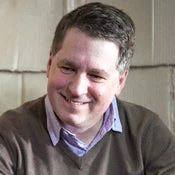We often question whether big international meetings achieve enough to justify the expense and trouble. But the news yesterday from New York suggests that, at the very least, global meetings create peer pressure on donors and a real sense of urgency.
Two major funding announcements have been made, both of which should result in lives saved. They’re particularly welcome because they’re focused on helping poor countries accelerate progress towards the current Millennium Development Goals (MDGs), which only have two years left to run.
Global leadership
The World Bank’s commitment to spend an additional $700m from its IDA fund – which lends or grants money to the poorest countries – on maternal and child health is very welcome.
Although we’ve made huge progress on child survival since the MDGs were signed in 2000 – with a 47% drop in under-five deaths since 1990 – there remains so much more to be done. MDG4 (on child mortality) is off-track both globally and in most countries, and more than 6 million children under five died last year. Rightly the Bank highlights the scandal of lack of access to skilled birth attendance.
Bank President Jim Yong Kim is giving global leadership to the movement for Universal Health Coverage, and this funding helps to build maternal and child health as the core of essential primary care.
5 million lives
Separately, the UK has announced a new pledge to the Global Fund to Fight AIDS, TB & Malaria of £1 billion over three years. MDG 6 on HIV and infectious diseases helped to galvanise the world to create the Global Fund.
While it’s had its fair share of problems, no one disputes that the Global Fund delivers results: more than 5 million people are alive today because they’re on antiretroviral drugs it paid for. The Global Fund’s money has helped 2 million women give birth with treatment that prevents transmission of the virus to their babies.
Britain’s support has been exemplary ever since its crucial role in establishing the Global Fund in 2002. Yesterday’s news – alongside generous commitments from the United States and Nordic countries – is intended to encourage other donors not to turn their backs.
Much more to do
The job is far from done on the MDGs. And we need even greater ambition for the period in the post-2015 framework that will set in place the next set of development goals. But continued financial support for institutions such as the Global Fund and the World Bank’s IDA fund is a key way to help countries wanting to build systems that can deliver universal health coverage – the best way to end the scandal of unnecessary deaths.
Other donors need to do the same as the UK and World Bank. Getting world leaders together appears to focus their minds and heighten their ambition.
This post originally appeared at Save the Children UK.



Join the Conversation